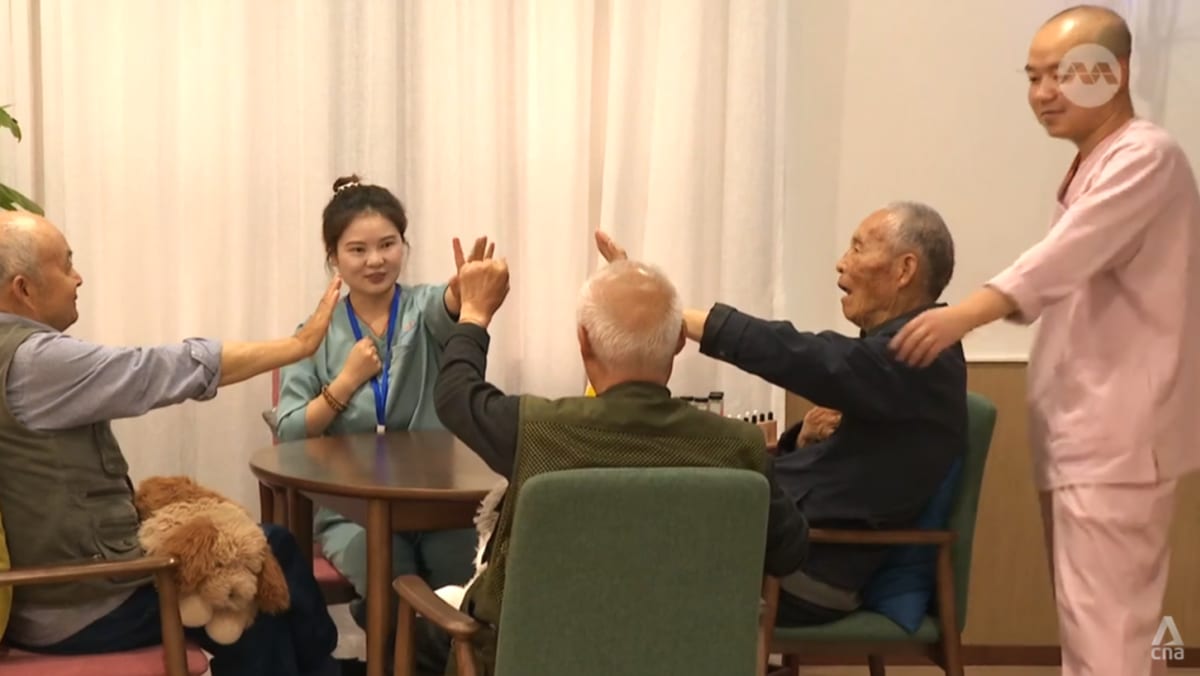Looking for alternatives, Ms Lu and her husband decided to move Mdm Wang to the Perennial facility, which is conveniently located near their home.
The senior is now taking music lessons, going for acupuncture and quick strolls at the park – activities that seemed impossible just six months ago.
Despite costing more than the US$1,000 a month that Mdm Wang’s son Mr Lu would have paid to hire a nanny, the family thinks it is a good decision.
“Here, she eats and sleeps well, and her mental state is great. She’s like a completely different, more energetic elderly lady. I think it’s good,” said Ms Lu.
Fees range from about US$1,200 to US$1,800 per month, depending on room type and level of care required for each resident.
There are 700 beds across its eldercare complex, including at its nursing and rehabilitation hospitals.
Perennial said it hopes to attract more Alzheimer’s sufferers to live in the facility and aims to have about 100 residents by year-end.
In the meantime, it is renting out rooms to tourists and visitors at US$60 a night, saying that it allows for positive interaction with its patients as it keeps them in touch with the outside world.
“Our ramp-up and operations may take a little longer. There’s a process of market cultivation, and we also need to identify our target customers,” added Dr Song Xiang Ying, vice dean of Perennial Alzheimer’s Care Village Xi’an.
Although experts say the effectiveness of such open-concept care facilities requires further research, the approach is still a step in the right direction.
Dr Philip Yap, a senior consultant at Singapore’s Khoo Teck Puat Hospital, noted that patients may experience agitation, restlessness, and a poor quality of life in an institutional and more healthcare-like medical care facility.
“We want to then create spaces that would accommodate their routines and habits,” added Dr Yap, who is also chairman of social services agency Dementia Singapore.
